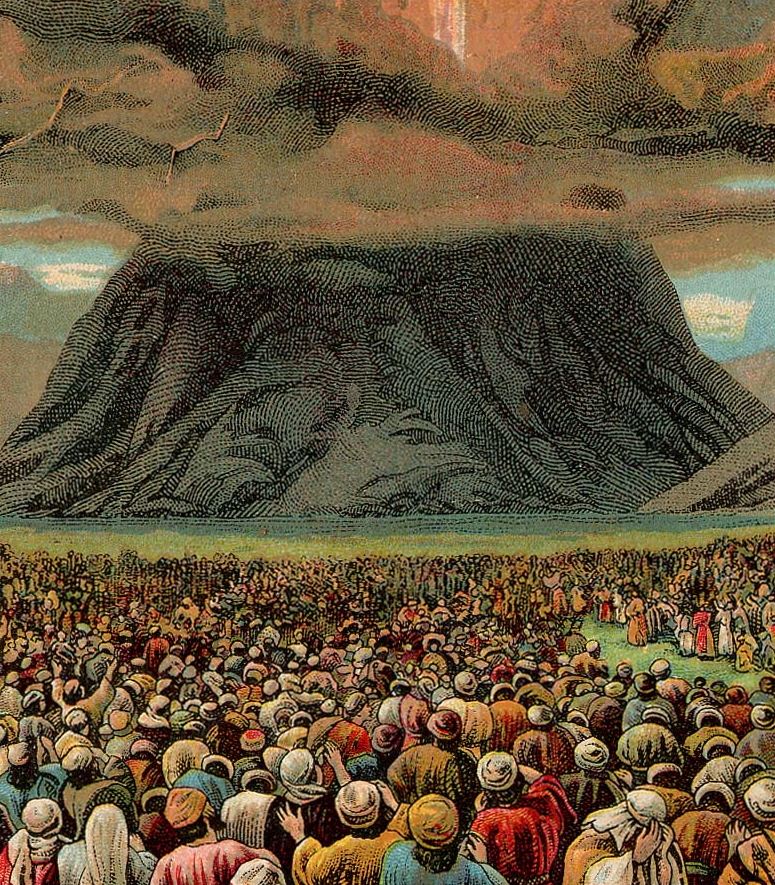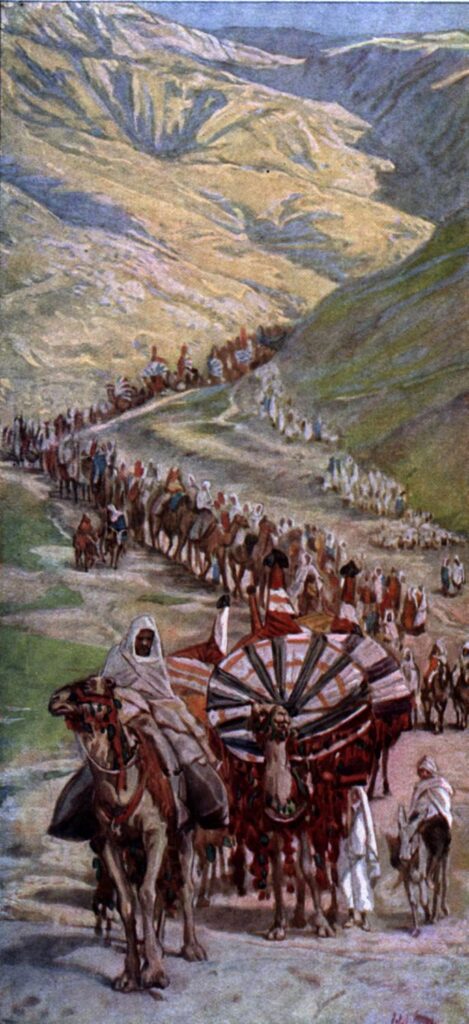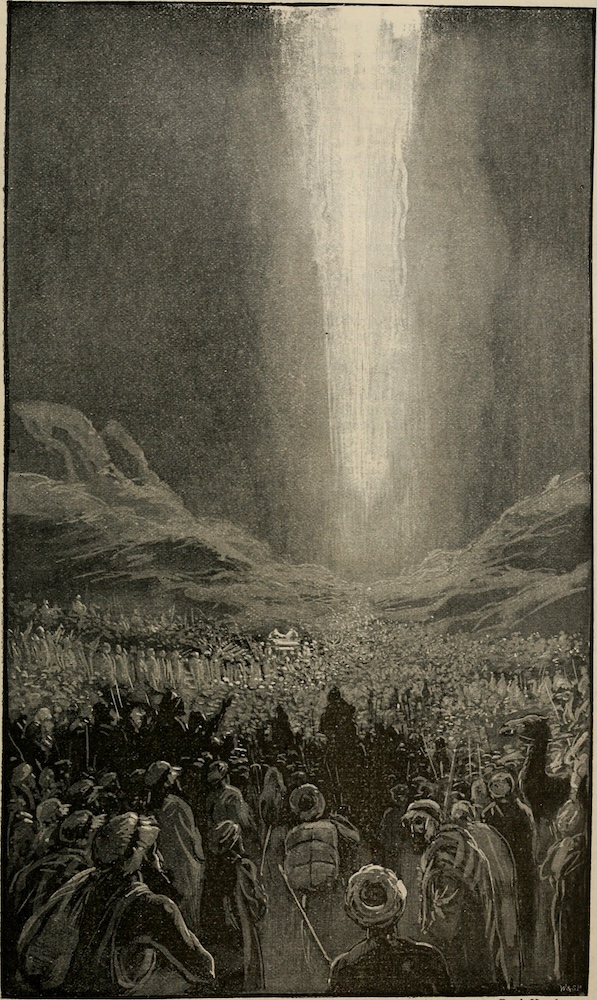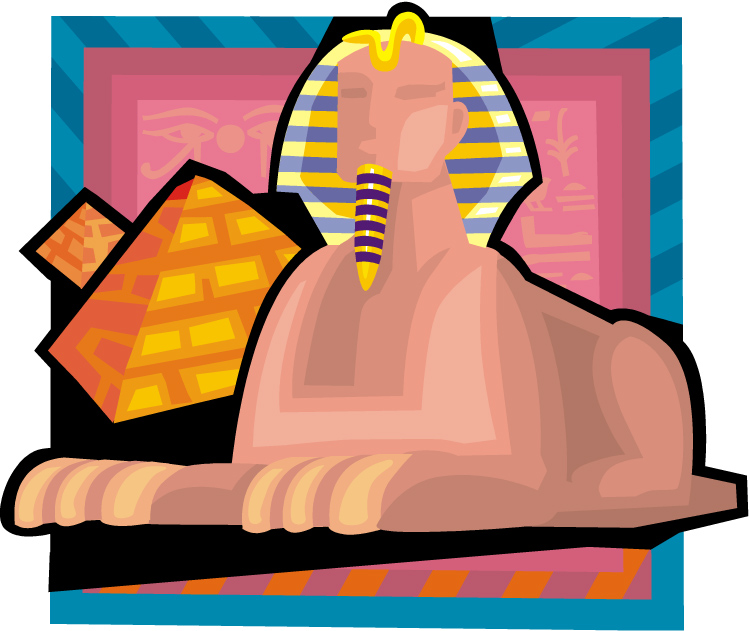
Exodus 18
Exodus 18:2–3, After he had sent her back.This verse suggests that Moses divorced his wife after their altercation over the circumcision of their sons (Exod 4:24–26). If so, what are the spiritual implications of this for us today?
The phrase sent away/back in verse two is the Hebrew shilluach which according to Strong’s Concordance and Gesenius’ Hebrew Lexicon can be a biblical term referring to divorce. Shilluach is from shalakh, a basic verb meaning “to send,” where in Isaiah 50:1 and Jeremiah 3:1 the prophets use it referring to YHVH’s divorce from the house of Israel or Ephraim.
Though rabbinical commentators Rashi and Hirsch fail to note the possibility of Moses’ divorce (Jewish Torah commentators tend to gloss over the faults of their great biblical heroes), Medieval Jewish Torah scholar Baal HaTurim notes this possibility in his commentary.
Yet in Exodus 18:2, YHVH still views Zipporah as Moses’ wife. What is going on here? Before this, Zipporah seems to have evidenced reluctance at obeying YHVH’s command to circumcise their sons (Exod 4:25), so did Moses put her away (divorce her) as a result? Was Moses, as the human “savior” of Israel from Egypt and an antetype (or prophetic forerunner) of Yeshua the Messianic Savior (Deut 18:15–19) in that he had to deal with a rebellious wife, even as Yeshua (in his preincarnate state as YHVH of the Tanakh) had to deal with his rebellious Israelite wife and eventually had to put her away?
Zipporah is never again mentioned in the Torah and, in fact, we see the possibly that the divorced Moses even married another woman (Num 12:1)—apparently a black woman from Ethiopia. Is this a prophetic picture of Yeshua remarrying his former wife (Israel) during the time of the Renewed/New (Marriage) Covenant (Ketubah), who has adulterously mixed herself with the nations and returns to him in a mixed racial (spiritually and biologically-speaking) condition (Hos 7:8)?
Thus, it is possible that Moses had to divorce his wife because she not only was reluctant to circumcise her sons, but there is no biblical record that she followed Moses in his divine commission to lead the children of Israel out of Egypt much less into the wilderness. If this is the case, then this is reminiscent of Lot’s wife who refused to follow her husband at YHVH’s command and chose instead to return to Sodom. It happened in Bible times and still does in our time that YHVH gives a ministry commission to a man and the wife refuses to follow with the marriage ending in divorce as the two go their separate ways.
If Moses led Israel as a divorced and remarried man, does this change your perspective about him? This could also affect our perspective on divorced people in ministry whose unsaved spouses are adversarially opposed to their spouses divinely commissioned ministry calling.
Moses and the Ethiopian Women. Moses’ marriage to the Ethiopian woman can be found in Josephus Antiquities of the Jews, book 2, chapter 11 (Ant. 2:11.1–2). According to Josephus based on Jewish tradition, she was one of the “spoils” of war when Moses, on behalf of the Egyptian monarchy, led an Egyptian army triumphantly against the Ethiopians who had invaded Egypt. The Ethiopian woman was a daughter of the king of Ethiopia. So quite possibly after Moses fled Egypt for Midian as a wanted criminal, he must have assumed that he would never return to Egypt and see his Ethiopian wife again, which, in his mind, freed him up to marry Yitro’s daughter, Zipporah. This marriage would have been before Moses was “saved” and before Elohim called and commissioned him at the burning bush in Exodus chapter three. So, when Zipporah refused, apparently, to follow him on his divinely appointed mission to Egypt, she abandoned him, which is why Moses had dismissed, divorced or sent her back (see Exod 18:2 where we read that Moses had “sent her [Zipporah] back,” Heb. shillûach meaning “dismissed, i.e., divorced”). It also appears that the righteous and YHVH-fearing Yitro tried to reconcile Moses and Zipporah when he brought her to Moses in Exodus 18:6. Moses implored Yitro to remain with him and accompany him in the wilderness (Num 10:29). However, the aged Yitro, and presumably along with his daughter, refused Moses’ plea ostensibly preferring the safety, security and familiarity of his own home in Midian over the uncertainties and inconveniences of wandering like a nomad in the wilderness. So Moses let Yitro return (Exod 18:27) evidently taking Zipporah with him, for it appears based on the textual evidence that she wanted nothing to do with Moses’ mission. Therefore, Moses, being left alone without a marital partner to accompany him on his divine mission, may have called back his former Ethiopian wife to join him, which she obviously did causing the scandal we read about it Numbers 12. If these suppositions are correct which the biblical and secular historical evidence seems to suggest that they are, this all goes to show that love, marriage and divorce and remarriage can lead to difficult, complex, sticky and divisive issues. Nevertheless, and obviously, YHVH’s merciful grace prevailed and Moses went forward approved of Elohim on his mission of leading the Israelites to the Promised Land.
To be sure, divorce and remarriage is not YHVH’s ideal for people because of all the attendant and problematic issues it engenders. The Bible is clear. YHVH’s perfect will from the beginning has always been one man for one woman until death separates them. But humans are imperfect, and YHVH’s grace is sufficient, and so there for his grace go each of us, as the saying goes.
Exodus 18:24, Chose able men. Here we see Moses choosing elders or judges over the congregation of Israel. These were “able men of accomplishment” in Israel. Compare this with Paul’s instructions about the qualifications of an elder in 1 Timothy 3:1–13 and Titus 1:5–9. If Moses was divorced at the time of his choosing the elders of Israel, does this clarify Paul’s statement that an elder must be “the husband of a [often mistakenly misunderstood to mean “one’s first and only wife” —a meaning not suggested by the Greek] wife”(1 Tim 3:2)? It would appear that the Scriptures do not prohibit divorced and remarried people from holding leadership positions (if the grounds for divorce are biblically legal) in the household of faith as some churches teach.
Exodus 19

Exodus 19:1, The third month. YHVH gave his Torah-instuctions in righteousness to Israel at Mount Sinai most likely on the Feast of Weeks (Chag haShavuot or Pentecost; Lev 23:15–21), which occurred in the third month of the biblical year. On the very same day, some 1,500 years after YHVH gave the Israelites his Torah-law at Mount Sinai another momentous event occurred. On the day of Pentecost in Acts chapter two, the Spirit of Elohim descended upon Yeshua’s disciples—the literal descendants of the children of Israel—who were gathered in one accord, and on that day YHVH wrote the very same Torah on the hearts of the disciples in fulfillment of Jeremiah’s prophecy (Jer 31:31–33 and Acts 2:1, 37 cp. Heb 8:7–13). There is a continuity of theme and purpose between these two events: a legally delineated standard of righteousness. YHVH does not change, for he is the same yesterday, today and forever!
Exodus 19:2, Mount Sinai. Mount Sinai, also known as “the mountain of Elohim” (Exod 3:1; 4:27; 18:5; 24:13; 1 Kgs 19:8), and is a geographical symbol of YHVH’s exalted earthly presence and heavenly government here below. Israel camped at the base of this mountain, positioning themselves through a process of sanctification to receive YHVH’s Torah. Empowered with the word of Elohim, YHVH commissioned the Israelites to be his special people, his kings and priests or, in other words, earthly evangelistic ambassadors to take his instructions in righteousness to the world. Likewise, Yeshua instructed his disciples to tarry or position themselves on another mountain—Mount Zion in Jerusalem—until they were endued with power from on high (Luke 24:49). For what purpose? Once empowered by the Spirit, and with the Torah written on their hearts (Acts 2:37), and as devoted followers of Yeshua the Living Torah-Word of Elohim (John 1:1, 14), they would be heaven’s spiritual salt and light to the nations (Matt 5:13–14; Acts 1:8), while walking out the Torah as his own chosen, special people as well as YHVH’s holy and royal priesthood (1 Peter 2:5, 9–10). Yeshua’s promise of empowerment and the commission he gave to his disciples leading up to and on the day of Pentecost has never changed from then until now. As redeemed believers in Yeshua, we are not only his disciples, but are the spiritual descendants of the ancient Israelites (Gal 3:29; Rom 4:16; 9:8–11 cp. Eph 2:11–19), and our mission is to pick up where our failed forefathers left off and finish the job of taking YHVH’s Torah (both the Written Torah and Yeshua the Living Torah) to the nations (Matt 28:18–20; Mark 16:15–18 cp. Matt 10:6)—a job that ancient Israel failed to accomplish because of disobedience to the Torah brought on by hardness of heart and unbelief (Ps 95:7–10; Heb 4:1–7).
Before the mountain.The children of Israel coming to Mount Sinai, preparing themselves to meet YHVH Elohim, and to receive his instructions in righteousness is symbolic of the spiritual path that all humans must take if they want to meet their Maker as we will learn in the brief study below.
Throughout history, humans have invented a myriad of religions and philosophical ideologies in an effort to reconcile man to heaven or some great power that is above him. This is because the Creator made man in his own image, made man to be connected to and dependent upon his Creator and placed eternity in the heart of man (Eccl 3:11); therefore, humans instinctively know that there is something more to this physical life—there is something “out there” beyond each of us that beckons us to a higher place—something eternal and spiritual. Humans instinctively know that they must improve themselves morally in order to get there. Some people follow that instinct and some reject it. In either case, the Creator has given each of us a conscience, that like the needle on a compass, points us to true north. The problem is that (a) man does not know how to get there and (b) he has internal (i.e., his rebellious and lawless sin nature; Jer 17:9; Rom 8:6–8; Jas 3:15) and external forces (i.e., the world the devil, as well as all the invented, non-biblical religions of the world; Jas 3:15) that keep him from find the way. All of these false paths lead everywhere else but to “true north.” In an effort some reach their Creator and to fulfill the inner longings of their hearts, man has invented religions and philosophies to get him to “heaven” through his own efforts but without dealing with the root reason that has prevented man from coming into the presence of his Creator. One thing keeps man bound to this earth, lost and confused; it is sin. No matter what his or her religious or philosophical efforts may be, it is impossible for one to pull oneself up by one’s own bootstraps. Until each human deals with the sin issue in his or her life, he will not progress one inch toward upward toward his higher destiny.
Only one religion, ideology, philosophy or whatever else you want to call it deals with the sin issue, and that is the Truth of the Bible. Until each man recognizes that his sin has separated him from a perfect, holy (totally pure, holy or seet-apart, righteous, all-loving and transcendent Elohim and that only by going through the spiritual cleansing process that heaven prescribes for the disease called sin can one find the answers to the deeper questions of life, resolve the sin issue that separates earth from heaven, and then eventually come into the presence of one’s Creator during and after this physical life.
Through Moses, a man who was prophetic picture of Yeshua the Messiah, YHVH led the Israelites to the foot of the Mount Sinai representing the presence of Elohim; it was an earthly metaphor for of heaven itself and the very throne room of the Creator.
To experience the presence of Elohim, humans are required to consecrate themselves before hand, and only then is one allowed one to climb upward spiritually to meet YHVH. This is done through a process of spiritual consecration or sanctification and involves getting cleansed from the defilements or rudiments of the world, flesh and devil (Jas 3:15; Col 2:8, 20), even as the Israelites cleansed or consecrated themselves physically in preparation to meet their Maker (Exod 19:10–11, 14).
A spiritual relationship with Elohim through the cleansing blood of Yeshua is the only cleansing process which is acceptable to YHVH Elohim by which humans can transcend spiritually. There is no other way (1 Pet 1:2; 18–19; 1 John 1:7; Rev 1:5; 7:14; Heb 10:19–22; 9:12; 12:24; Matt 26:28; Eph 1:7). Yeshua is literally the only way to the Father in heaven (John 14:6; Acts 4:12). He is the spiritual ladder that each person must climb (John 1:51) to attaint the summit of Mount Sinai representing the exalted presence of Elohim (Gen 28:12). Yeshua is literally the gateway or door to heaven (Gen 28:17; John 10:7–9; 14:6).
The Book of Exodus’ account of the children of Israel coming into the presence of Elohim is an illustrative example of the process that each of us must go through to meet our Maker on his terms, not our terms.
Of course, this cleansing process or spiritual journey did not start at Mount Sinai for Israelites. It started back in Egypt when they put their faith in the blood of the lamb to save them from Elohim’s judgment against sin, and when they had then deleavened their lives of sin, and then passed through the Red Sea—a picture of baptism for the remission of sins. These are all symbolic and prophetic pictures that point to the steps that each person must take if they want to see Elohim. These steps include acceptance of Yeshua the Messiah, the Lamb of Elohim and his death on the cross, putting sin out of one’s life, and then being baptized for the remission of sins.
To the spiritually astute whose eyes are opened to heaven’s light, these truths should be as plain as day, but human pride and rebellion against the Truth of Elohim have blinded most humans from reality.
Now that you know this simple Truth, what will you do about it?
Exodus 19:3, Moses. The name Moses/Moshesh literally means “drawing out or rescued.” What was Moses drawn out of or rescued from? From the waters of the Nile River in Egypt. Water can be a biblical metaphor for humanity, and Egypt a metaphor for Satan’s world. That is to say that Moses was drawn out of or rescued from the seas of humanity. YHVH then used Moses to rescue, draw forth or fish the children of Israel out of the same sea of Satan’s world and lead them to YHVH, which brings us to Mount Sinai. There YHVH gave his people laws that would help to bring them into a loving relationship with him.
Moses went up to Elohim. Moses acted as YHVH’s intermediary to prepare the Israelites for their “marriage” to him. In a repeat of history, Malachi prophesied that in the last day YHVH would send other intermediary forerunners to turn the hearts of the children back to the foundations of their faith including the Torah before the return of Yeshua, thus preparing the saints to be the bride of Yeshua (Mal 4:1–6). As YHVH gave the children of Israel, his spiritual bride, three days to prepare themselves to meet him (Exod 19:11), so YHVH is likewise giving his end time saints time to prepare themselves to meet Yeshua, their heavenly Bridegroom at this second coming. As Malachi prophesied and Yeshua alluded to in his Parable of the Ten Virgins, returning to the ancient Torah-roots of the saints’ faith is central to this preparation process.
From the mountain. YHVH not only exists, but he exists above the earth on a proverbial mountain far above the human plane. Isaiah declared that YHVH is “high and lifted up.” He is calling us to come up to him. Will we go up to him, or do we love this world too much to answer his call to come up? Twice David the psalmist asks and then answers the question, who will ascend the hill or mountain of YHVH?
YHVH, who may abide in Your tabernacle? Who may dwell in Your holy hill? He who walks uprightly, and works righteousness, and speaks the truth in his heart; he who does not backbite with his tongue, nor does evil to his neighbor, nor does he take up a reproach against his friend; in whose eyes a vile person is despised, but he honors those who fear YHVH; he who swears to his own hurt and does not change; he who does not put out his money at usury, nor does he take a bribe against the innocent. He who does these things shall never be moved. (Ps 15:1–5)
Who may ascend into the hill of YHVH? Or who may stand in His holy place? He who has clean hands and a pure heart, who has not lifted up his soul to an idol, nor sworn deceitfully. He shall receive blessing from YHVH, and righteousness from the Elohim of his salvation. (Ps 24:3–5)
Are you a spiritual mountain climber, or one who is content to be a spiritual low-lander preferring to inhabit the basement of life?
Exodus 19:4, On eagles’ wings. Is this reference to an eagle carrying its young on its wings literal or poetic metaphor. In researching this subject, ornithological experts refer to this idea as mere folklore. Therefore, it appears that the expression “on eagle’s wings” is to be taken symbolically and not literally. As such, regarding YHVH’s care of the Israelites, it can be taken to mean several things. “On eagles’ wings” can indicate YHVH great tender and protective care of the Israelites as they were escaping the clutches of their Egyptian masters. YHVH brought the Israelites out of “the nest” of the iron furnace of Egypt with strength and swiftness, and he raised their status from that of slaves to that of soaring with dignity and prowess like eagles as a free nation and as servants of the Most High Elohim. This he did by extricating the Israelites from the clutches of the world’s most powerful nation, and then defeating that nation as an eagle swoops down upon its prey. YHVH also brought the Israelites across the Red Sea on dry land as if they were flying over that body of water.
Will YHVH cause his end times redeemed Israelites to come out of end times Babylon on “eagles wings” again as he leads them into the wilderness en route to the Promised Land? (See Rev 18:4 cp. Rev 12:14; Ezek 20:33–44; Hos 2:14–23.)
Brought you [Israel] to myself. YHVH’s purpose for calling Israel out of Egypt was to bring them to himself. One cannot be of the world and the same time be in Elohim. Yeshua said that his servants cannot serve two masters—Elohim and this world (or mammon). He also declared that though we are in this world, we are not to be of this world. Though we live in this world physically, we are not to be a part of, loyal to or identify with this world spiritually.
Exodus 19:5 (also Exod 24:20–26), If…then. The Mosaic or Sinaitic Covenant was a conditional covenant in that YHVH promised to bless the Israelites if they would obey him. At the same time, the previous covenant that YHVH made with Abraham (the Abrahamic Covenant) laid out the conditions for salvation; it was an unconditional covenant based on faith in YHVH alone. In other words, the Abrahamic Covenant shows how one how to be saved, while the Mosaic Covenant shows one how to walk in righteousness once one is saved. This fundamental truth has never changed from the time of Abraham until the New Covenant. The Testimony of Yeshua teaches us that while salvation is an unconditional gift (as per the Abrahamic Covenant) because it is based only on believing faith and heaven’s grace (Eph 2:8–10), at the same time, temporal and spiritual rewards are conditional and are predicated upon obedience to YHVH’s Torah commandments (as per the Mosaic Covenant). Thus, the New Covenant combines into one covenant the conditions for salvation and the blessings of both the Abrahimic and Mosaic covenants as Paul alludes to in Ephesians 2:12, when he says that the Gentiles are no longer “without Christ, being aliens from the commonwealth of Israel and strangers from the covenants [plural—referring to both the Abrahamic and Mosaic covenants] of promise, having no hope and without Elohim in the world.” Thus, YHVH’s covenantal promises and the conditions and blessings thereof have never changed from the time of Abraham and Moses until now. They have merely been combined, updated to include Yeshua the Messiah, and expanded to include the entire world just as YHVH promised to Abraham:
In your seed all the nations of the earth shall be blessed, because you have obeyed My voice.(Gen 22:18)
And I will make your descendants multiply as the stars of heaven; I will give to your descendants all these lands; and in your seed all the nations of the earth shall be blessed. (Gen 26:4)
Also your descendants shall be as the dust of the earth; you shall spread abroad to the west and the east, to the north and the south; and in you and in your seed all the families of the earth shall be blessed. (Gen 28:14)
Now to Abraham and his Seed were the promises made. He does not say, “And to seeds,” as of many, but as of one, “AND TO YOUR SEED,” who is Messiah. (Gal 3:16)
Again, the agreement between Elohim and Israel known as the Mosaic or Siniatic Covenant was conditional. His blessings upon Israel and his elevating them to most favored nation status was conditional upon their obeying his voice and walking in covenant with him. It was based on relationship. Is not everything in life that we do based on conditional agreements and relationships with other people and the world around us? There are things we have to do if we want certain outcomes. If we fail to do them, then we pay the price by experiencing negative consequences. This includes marriage agreements, employer-employee relationships, friendships, buying a car or house, staying behind a guardrail on the edge of a cliff, following the driving rules of the road, obeying the laws of the land, taking care of our bodies, eating and not eating certain foods, and the list goes on and on. Why should we think that our relationship with our Creator is any different? If we follow his rules, we will be blessed, and if we do not, we will suffer the consequences.
My covenant. Here YHVH presents the terms of the marriage covenant (or ketubah) to Israel. Those marital conditions are his Torah-law. If they chose to accept YHVH’s covenantal terms, they would be his treasured possession (or am segulah), and would be above all the people of the earth.
Obey my voice…keep my covenant. Too many times we are inclined to think of the Bible in terms of dos and don’ts—laws and rules. If we stop mid-sentence in verse five, this is what we come up with, and this is off-putting to most people who are naturally averse to rule-keeping. However, obedience to YHVH and his commandments is simply a means to an end as the second half of this verse shows us. It is about relationship with our Creator—about blessings, life and eventually immortality.
Peculiar treasure. The term treasured people (Heb. am segulah)is used several times in the Torah. Here (Exod 19:4–6) YHVH betrothed himself to and married the people of Israel and they became his am segulah or treasured possession among all the peoples of the nation, a kingdom of priests and a kadosh or a holy and set-apart nation. Later Moses restates this same idea to the younger generation Israelites about to enter the Promised Land (Deut 14:2); and finally in Deuteronomy 26:18 (see also 7:6), he again calls Israel his “treasured people” and admonishes them to keep his Torah-commands that he might “make you high above all the nations which he has made, in praise, and in name, and in honor, and that you may be a set-apart people unto YHVH your Elohim.” In the Testimony of Yeshua, this theme is again picked up by Peter in his first epistle (1 Pet 2:9), when he refers to the saints as “a chosen generation, a royal priesthood, a set-apart nation, a peculiar people.”
Again am segulaho means “possession, treasure, valued property, peculiar treasure.” The basic meaning of the word is ‘personal property.’ Well attested in Hebrew, Ugaritic, and Aramaic, the Akkadian sakalu, ‘to acquire property’ and sikiltum ‘personal property’ are also doubtless related. While the word occurs only eight times, it is filled with theological and spiritual treasures. The preacher in Ecclesiastes reports that the accumulation of the finest of personal possessions is sheer vanity. Those who fear the Lord become his peculiar possessions whom he will never forget, even in that time of great judgment (Mal 3:16–18, see TWOT).
“Israel was God’s personal possession (Ps 135:4). Moses reminded Israel that God chose her and redeemed her from bondage not because of her goodness, but solely because he loved her and was faithful to the promises given to the patriarchs. Israel should reflect God’s holiness and live out his commandments (Deut. 12:2ff), reflecting his standards in a life of wholehearted compliance with the terms of the covenant made at Sinai (Ex. 19:5-6) and renewed at their entrance into Canaan. Then would they have good success (Deut. 26:16-19). So it should be with all believers. These verses are doubtless alluded to in Titus 2:14 and 1 Peter 2:9” (ibid.).
How do you view yourself spiritually? More importantly, how does Elohim view you? How are these two views different from each other? How you view yourself should be determined by what the Scriptures say about you. What does Elohim’s Word say, and do you believe it?
- I am complete in Yehshua who is the head of all principality and power. (Col 2:10)
- I am free from the law of sin and death. (Rom 8:2)
- I am alive with Yeshua. (Eph 2:5)
- I am far from oppression, and fear does not come near me. (Isa 54:14 )
- I am born of Elohim, and the evil one does not touch me. (1 John 5:18)
- I am holy and without blame before him in love. (1 Peter 1:16; Eph 1:4; Col 2:10)
- I have the mind of Yeshua the Messiah/the Anointed One. (Phil 2:5; 1 Cor 2:16)
- I have the peace of Elohim that passes understanding. (Phil 4:7)
- I have the Greater One living in me, greater is he who is in me than he who is in the world. (1 John 4:4)
- I have received the gift of righteousness and reign as a king in life by Yeshua Mashiach. (1 John 4:4 Rom 5:17)
- I have received the Spirit of wisdom and revelation in the knowledge of Yeshua, the eyes of my understanding being enlightened. (Eph 1:17–18)
(For a complete list of what the Scriptures say about you, please see http://www.hoshanarabbah.org/pdfs/who_i_am.pdf.)
So YHVH wants to bring you and me to himself to be his own treasured possession. What is your treasured possession? If your house was burning down or you had to flee immediately and could take only one possession, what would it be? That is how YHVH views those who seek and follow him, but much, much more.
bove all people. YHVH exists in heaven, on a proverbial mountain. He invites his people—those who answer his call—to come up to him. He has shown us the way—his way, the way of Torah (i.e., obeying his voice and keeping covenant with him), which is the way up to him. When we come up to him, it will put us above the people around us. That is why the Bible always speaks of “going up to Jerusalem” or “going down to Egypt.” Heaven is above this earth; the earth is below heaven.” Those who are citizens of the kingdom of Elohim are at a higher spiritual plane than those who are of this earth or world. It does not mean that Elohim’s saints are better than anyone else. It just means that they are walking at a higher level spiritually, and that they have been saved by his grace—his unmerited pardon, and that he has divinely enabled them to obey him. Let no man glory in his, wisdom, might or riches but only in the fact that he understands and knows Elohim (Jer 9:24).
For all the earth is mine. Why does YHVH add this phrase after the previous one? What is his point? As the Creator of all things, everything belongs to him; therefore, he determines the rules and on what basis he will elevate people to a special status before him. He delivered Israel out of Egypt and chose Israel to be his own treasured people conditional upon their obeying his voice and walking in covenant with him (v. 5). All of the other religions, man-made philosophies and spiritual paths notwithstanding, there is only one way to Elohim; it is his way.
Exodus 19:6, Kingdom of priests. It was not only YHVH’s intention for Israel to become his spiritual “wife,” but also a kingdom of priests (or kings and priests) to lead the rest of the world into a relationship with YHVH. This is the same ministry that YHVH has given to the glorified and resurrected bride-wife of Yeshua during the Millennium according to the Book of Revelation (Rev 1:6; 5:10; 20:6). Even now, the saints are preparing to fulfill this role through on-the-job training when Peter refers to the saints as “a holy priesthood” and “a royal priesthood” (2 Pet 2:5, 9). It is the heaven-ordained mission of the saints to carry on with YHVH’s mission for his people where the children of Israel “dropped the ball” and failed in their divine call to evangelize the world from the land of Canaan, which was a geographically and strategically located along the ancient trade routes between three continents.
Exodus 19:8, We will do. When the children of Israel, the bride of YHVH (see Ezek 16:1–14), said “I do” to YHVH three times (also see Exod 24:3, 7), they were accepting the conditions of the Mosaic Covenant and promising to take YHVH as their “husband” and to obey his Torah-commandments. These, in effect, were their marriage vows or ketubah where they promised to obey their “husband,” who in turn promised to bless and care for them. Similarly, on the day of Pentecost, 3,000 new believers said “I do” to YHVH-Yeshua when they repented of their sins (i.e., Torahlessness; see 1 John 3:4; Acts 2:38), put their faith in Yeshua the Living Torah-Word of Elohim who was the promised Messiah, and were then baptized for the remission of sins (Acts 2:41). In so doing, they became betrothed to Yeshua (2 Cor 11:2), and began preparing for their ultimate marriage to him which will occur at his second coming (Rev 19:7–9).
Exodus 19:9,The thick cloud. What is the spiritual lesson here? Spiritual light comes out of and pierces spiritual darkness. YHVH indicated that he would came in thick clouds. Similarly, Yeshua, the Light of the world and Sun of righteousness ascended in the clouds and will come back in thick clouds (Acts 1:9–11).
Exodus 19:10, Consecrate them. Prior to YHVH appearing to the Israelites from Mount Sinai, Moses ordered the nation to prepare or sanctify itself through cleansing including washing their clothes. This physical act points to a higher principle: one cannot come into the holy or set-apart presence of YHVH with dirty spiritual clothes. Even in our day, YHVH is not coming back for a bride who is wearing filthy spiritual garments, but one who is without spot and wrinkle (Eph 5:27). Absolutely not! His bride will be wearing pure white robes which are the righteous deeds of the Torah-obedience (Rev 19:8 cp. Matt 5:19), and the righteousness of Yeshua (Rom 5:21; 8:1–4, 10; 1 Cor 9:21; Eph 2:6, 10; Gal 2:20; 2 Cor 5:17; Eph 4:22–24; Phil 1:11; Tit 2:14; Heb 13:21). Thus, it is incumbent upon each saint, who is a potential bride of Yeshua, to examine himself and herself daily to ensure that they measure up spiritually per the Word of YHVH Elohim, which will the standard of righteousness against which each person will ultimately be judged.

Consecrate/sanctify them. Consecrate is the Hebrew word qadash meaning “to be clean, to make, pronounce or observe as being clean (ceremonially or morally).” From these verses and the meaning of the Hebrew word qadash we can learn several things. First, YHVH Elohim does not allow people to come into his presence until they are made clean. Elohim is holy (Heb. kadosh) or totally pure and without even a shadow or hint of moral defect. It is impossible for sin and sinful people to abide in his presence. Therefore, for any human to approach him, two things must happen. One must first become clean, and second, one must be declared ceremonially and morally clean as the meaning of the word qadash suggests.
To make oneself clean, one must first realize that next to a totally holy or pure Elohim one is totally filthy because of one’s sin. Scripture declares that even one’s righteousness is as filthy rags to YHVH (Isa 64:6). As an object lesson to illustrate this spiritual reality, YHVH told the children of Israel to wash their clothes and to refrain from sexual involvement before coming into his holy presence. Dirty clothing signifies physical defilement and the sex involves moral defilement. Biblically speaking, wearing dirty clothes and having sex with one’s spouse is not a sin. However, YHVH was teaching his people that when they come into his presence, normal human activities must be put aside, and they must prepare themselves spiritually by giving him their full attention. Too many people approach YHVH blithely accepting his grace and forgiveness without acknowledging and repenting of their sin. They want the free gift of salvation and their get-out-hell card without it costing them the loss of their sinful lifestyle. No! While salvation is heaven’s free gifts, but it will cost you everything! Yeshua declared that to follow him, one must be willing to give up everything includine one’s own life.
Furthermore, YHVH Elohim is high and lifted up far above the human plane. To illustrate this reality, he appeared to the Israelites from the mountain top of Sinai. When humans actually stop to consider how high YHVH is and low they are, this should cause them to reflect on their own inadequacy and lack of moral purity resulting in their making some spiritual adjustments in their lives. This is what Moses required of the children of Israel at the base of Mount Sinai previous to their encounter with the Divine. And this is why on the day of Pentecost in Acts chapter two, after Peter preached his sermon admonishing the people to accept Yeshua as their Savior. Subsequently, they asked the apostle what they had to do to be saved. Repent of or turn away from their sin and to be baptized or ceremonially cleansed was the only acceptable answer.
Both of the examples of the Israelites at Mount Sinai on the Feast of Weeks (or Pentecosts) and the early Jewish believers on the day of Pentecost teach us the steps that heaven requires one to take to become spiritually clean. It is YHVH’s grace and the imputed righteousness of Yeshua that makes up our lack of cleanliness despite our best efforts to make ourselves clean. It is impossible for our own good works to save us; we need his forgiveness and grace to make up the deficiency.
Once YHVH sees that we are willing to take baby steps toward him in our efforts to put off of ourselves the defilement of sin and carnality, he, as our loving Heavenly Father, is all too willing to cover us with his grace. He, mercifully, judges us not based on our actions, or the lack thereof, but on the intent of our hearts to serve, love and obey him. At Sinai, the Israelites took some baby steps toward YHVH, and he graciously allowed them to experience his presence. If we follow their example, we might be surprised to find that YHVH Elohim will likewise reveal himself to us in special, extraordinary and even life-changing ways.
Exodus 19:11, Ready for the third day. The Israelites were given two days to prepare for YHVH’s coming on the third day. Similarly, the church or bride-to-be of Yeshua, which has its spiritual roots in the first century ad, has been given two prophetic days or 2,000 years to prepare for Yeshua’s second coming. He will come in the third millennia (or third prophetic day) after Yeshua’s first appearance. Hosea the prophet predicted this long ago:
For I will be unto Ephraim as a lion, and as a young lion to the house of Judah: I, even I, will tear and go away; I will take away, and none shall rescue him. I will go and return to my place, till they acknowledge their offence, and seek my face: in their affliction they will seek me early. Come, and let us return unto YHVH: for he hath torn, and he will heal us; he hath smitten, and he will bind us up. After two days will he revive us: in the third day he will raise us up, and we shall live in his sight. (Hos 5:14–6:1–2)
The third day. (See notes at Exod 19:1.) Let’s explore the idea of the third day a little more.In Exodus 19:11, YHVH tells the Israelites to consecrate themselves and wash their clothes for two days, then “be ready against the third day, for the third day YHVH will come down in the sight of all the people upon mount Sinai.” Every detail in YHVH’s Word is important. Let’s not read over the details too quickly, for we might miss some wonderful nuggets of truth hidden therein!
The term the third day is mentioned twice here. What is the prophetic significance of this scriptural phrase as it relates to the work of Messiah among his people. For two days (verse 10) the people were to wash and prepare themselves for the third day when YHVH would appear to marry them in covenantal relationship. If a day is as a thousand years (Ps 90:4; 2 Pet 3:8) then what is this a prophetic picture of? (Read Hos 6:1–3 and Luke 13:32; compare also with Gen 22:4 and John 2:1.)
Exodus 19:12, 21, Set bounds…put to death. The children of Israel were spiritual children not unlike physical children. As spiritual kindergartners, they had to be taught the ways of Elohim using the simplest and most elementary approach. Consider this. They had spent generations living in Egypt as a godless and pagan people, thus they had little or no understanding Elohim much less of his holiness. They were totally lost and enshrouded in the spiritual darkness of this world. Therefore, YHVH had Moses spell out in the most basic and graphic terms that Elohim was holy or perfectly pure and sinless and what his character and qualities were vis-à-vis sinful humans. The setting of bounds around the base of Mount Sinai illustrated to the Israelites in the most demonstrative and graphic terms that sinful humans could not approach the presence of Elohim and expect to live. After all, the wages of sin is death and all humans have sinned (Rom 6:23; 3:23; Ezek 18:3). Throughout Israel’s wandering in the wilderness, the lesson that sin has disastrous consequences is one that these spiritual school children would have to learn again and again. A sinner cannot just waltz into the presence of a holy Elohim and expect to live. The Tabernacle of Moses along with its Levitical and sacrificial systems with the elaborate ceremonies and rituals that accompanied these systems was an elaborate theatrical classroom designed to teach humans how and on what terms sinners could enter into a relationship with a totally sinless, pure and righteous Elohim, who abides on a high spiritual level far above the human plane in every way. In fact, this is the message of the whole Bible from beginning to end.
Exodus 19:15, Do not come near your wives. In preparation to meet YHVH, the Israelites were to abstain from all sexual relations with their wives. Similarly and on the spiritual level, the end time betrothed bride of Yeshua is to remain as “chaste virgins” unspotted from all spiritual relations with the world and the devil in preparation for their marriage to Yeshua (Rev 14:4). Without holiness, no one will come into the presence of Elohim (Heb 12:14), much less be married to his Son. Additionally, YHVH is presently calling his people—Yeshua’s betrothed bride—out of spiritual fornication with the world system or Babylon the Great (Rev 18:4; 2 Cor 6:17).
And I heard another voice from heaven, saying, Come out of her, my people, that ye be not partakers of her sins, and that ye receive not of her plagues. (Rev 18:4)
And what agreement hath the temple of God with idols? for ye are the temple of the living Elohim; as Elohim hath said, I will dwell in them, and walk in them; and I will be their Elohim, and they shall be my people. Wherefore come out from among them, and be ye separate, saith the Lord, and touch not the unclean thing; and I will receive you, and will be a Father unto you, and ye shall be my sons and daughters, saith the Lord Almighty. (2 Cor 6:16–18)
Exodus 19:16, 19, Thunderings and lightnings. As there was lightning, thunder, clouds and smoke at YHVH’s presence, when he came down upon Mount Sinai, so there was a rushing wind and fire on the day of Pentecost in Acts chapter two. The same and much more will occur at Yeshua’s second coming, when he comes down from heaven for his bride (Matt 24:29–30; Rev 11:14–19). As the shofar blast announced YHVH’s arrival at Mount Sinai (Exod 19:16), even so, the shofar will also sound at Yeshua’s second coming for his bride (Matt 24:31; 1 Thess 4:16; 1 Cor 15:51–53; Rev 11:14–19). This speaks prophetically of the shofar blast signaling the new moon of the seventh month on the Day of Trumpets or Yom Teruah, when the saints will be resurrected (changed in the moment of a twinkling of an eye at the last or seventh shofar blast) when meeting Yeshua in the air (1 Cor 15:51–53; Rev 11:14–19).
Exodus 19:17, Moses brought. Moses brought the people out to meet YHVH. Similarly and in the last days, those saints coming in the spirit of Elijah and John the Baptist (Mal 3:4–6) will bring to Yeshua’s bride-to-be the message of the repentance from sin (or Torahlessness) for the kingdom of heaven is at hand (see Matt 3:2; 4:17, 23; 6:9; 24:13; Mark 1:15; Acts 1:3). These messengers are presently preparing the saints of Yeshua to meet him at his second coming.
Exodus 19:16, 19 Voice of the trumpet [Heb. shofar]. The word shofar first occurs in Exodus 19:16 and refers to the heavenly shofar that sounded when YHVH gave the Torah to Israel at Mount Sinai. This is the first time the Scriptures record the shofar being sounded, and the fact that this sound was of divine origination is evidenced by the fact that the shofar sound increased, not decreased, in volume the longer it sounded, which humanly is an impossibility (Exod 19:16–19).
The Ram’s Horn Shofar and Its Spiritual Significance

In Jewish thought, the Scriptures speak of three great shofar blasts that have historical and prophetic significance: the first, last and great or final shofar blasts.
The First Trump (or shofar blast) occurred on Shavuot at the giving of the Torah (Heb. Matan Torah) at Mount Sinai (Exod 19:16, 19). This shofar blast was of heavenly origin and is the first time the Bible records the sound of the shofar being heard.
The Last Trump (or shofar blast) occurs on Yom Teruah (the Day of Trumpets/Shofar Blasts, colloquially called Rosh Hoshana) is the day of the awakening blast calling the saints to prepare their spiritual garments in preparation for the coming Messiah or Bridegroom. This shofar blast corresponds to the last trumpet blast of Revelation 11:15 after which the resurrection of the righteous occurs (1 Cor 15:51–53).
The Great Trumpet or Final Trumpet (or shofar blast called the Shofar haGadol) is blown on Yom Kippur (Day of Atonement) signifying the Elohim’s day of judgment and the return of Messiah Yeshua as the King and Judge of the earth. At this time, most likely he will destroy Babylon the Great with its new world order religious, political and economic system (Rev 19:1–21 cp. Rev 18) just before the establishment of his millennial kingdom (Rev 20:1–10). Historically and according to the Torah, on the Day of Atonement, the jubilee trumpet sounded in Israel on the fiftieth year. At this time, the captives were set free, debts were forgiven and all land was returned to its original owners. Matthew says that Yeshua the Messiah will return with a great sound of a shofar (trumpet, Matt 24:30–31; 1 Thess 4:16). Perhaps this is a reference to the shofar ha-gadol when Yeshua returns to earth, will set the spiritual captives free from enslavement to the enslaving economic, religious and political tentacles of end time Babylon the Great.
What’s So Special About the Sound of the Shofar?
The Shofar
The ram’s horn shofar is a unique biblical instrument of great symbolic and spiritual significance. Its power to send inspire YHVH’s people while simultaneously sending shock waves of fear through the camp of Israel’s enemies is legendary! Let’s explore the mystical qualities of this biblical instrument of divine origination that has the ability to stir the human heart at its deepest level, to pierce the heavens, to bring man back to Elohim and vice versa, and to send spiritual shock waves through the devil’s camp.
The Word Shofar Defined
The Hebrew word shofar (pl. shafarot) occurs 72 times in the Tanakh (Old Testament) and is usually translated into English as trumpet and simply means “ram’s horn.” What could possibly be so special about a ram’s horn? The answer possibly lies in root word from which shofar derives—shapar meaning “to be pleasing.” Derivatives of this word include sheper, which is translated as beauty in Genesis 49:21, and shipra meaning “fairness or clearness (of sky)” (Job 26:13). The root shapar is found only once in the Scriptures in Psalm 16:6 where David, filled with praise to Elohim, describes the blessings from above that have fallen on him as “most beautiful” or “pleasant.”
As we explore the spiritual significance of the shofar as revealed in the Scriptures in this brief study, hopefully, the beauty and significance of the shofar will become apparent.
The Origination of the Shofar
Even though a shofar can be made from the horn of any kosher animal (except that of a cow, since, according to Jewish tradition, it resurrects unpleasant specters of the golden calf incident), the ram’s horn shofar is the most desirable type of shofar since it reminds us of the binding of Isaac at the akeidah (Genesis 22), and thus symbolizes the type of lives of trusting faith that YHVH’s people are to live. The curve of the horn pictures the bent or humble spiritual demeanor of the heart one must have before YHVH, the Creator and the Holy One of Israel—a heart of contrition and repentance (Heb. teshuvah).
The first place a ram’s horn is mentioned in the Bible is at the akeidah. It was there that Abraham, in humble submission to YHVH, was willing to trust YHVH with the life of his only beloved son and sacrifice to YHVH that which was most precious to him. The children of Abraham, which the saint are (Gal 3:29; Rom 4:16; 9:8–11), must be willing to give over to him that which is precious to them if required, even as YHVH sacrificed his Son for us (Gen 22:1–19).
At the akeidah or “the binding of Isaac,” YHVH provided Abraham a substitutionary sacrifice for his son in the form of a ram caught by its horns in a thicket (Gen 22:13). This is a prophetic picture of Elohim who willingly gave Yeshua, his Son, the Lamb of Elohim slain from the foundation of the world (Rev 13:8) as a substitutionary payment for men’s sins (John 3:16). In fact, the first mention of the word love (Heb. ahavah) is found in this same account (Gen 22:3), where YHVH instructs Abraham to offer up Isaac his only son who he loves. It is impossible to miss the prophetic allusion here to the well-known John 3:16 passage, which states that Elohim so loved the world that he sent his only begotten Son, Yeshua, to die for the sins of the world. Therefore, for the redeemed believer, the sound of the shofar represents Yeshua’s victory over sin and death and, in turn, our victory over the same through Yeshua our Lord and Savior who died in our place.
Not only this, but the ram’s horns being caught in the thicket (Gen 22:13) is a prophetic picture of Yeshua the Lamb of Elohim wearing the crown of thorns while hanging on the cross. In fact, it is even possible to see in the two horns of the ram the two comings of Yeshua. A horn in the Scriptures is a Hebraic symbol of strength or power. At the same time, the stronger right hand represents power and judgment, while the weaker left hand represents mercy and grace. Therefore, it is possible to see in the left horn of the ram the first coming of Yeshua, who came to die as the sacrificial lamb for the sins of the world. Conversely, the right horn prophetically pictures Yeshua’s second coming as the King who will judge the earth and will establish his eternal kingdom in power. Therefore, when the saints sound the shofar, it reminds us of Yeshua’s second coming, while at the same time this sound terrifies the dark forces of evil, since it reminds them of things they’d rather forget—especially their eternal fate at the hands of the King of kings and Righteous Judge of the universe!
When Was the ShofarSounded in Biblical Times?
The shofar in biblical times was sounded for nearly every significant occasion in the life of the ancient Israelites. It was to them what the telephone, email, radio and text messaging is to us today. It was their main source of instant communications. The shofar was blown for the following reasons.
- It announced the Day of Shouting or Blowing (Heb. Yom Teruah), the full moon feasts (Unleavened Bread, Pentecost and Tabernacles) and the new moon (Ps 81:4).
- It signalled the first day of the seventh month (Lev 23:24; Num 29:1) the Day of Blowing (Yom Teruah).
- It was a call to repentance (Isa 58:1; Joel 2:15).
- The shofar was blown when a king was anointed (1 Kgs 1:34, 39, 41; 2 Kgs 9:13).
- It’s a call to battle (Job 39:24–25; Ps 47:5). It signified the start of war (Josh 6:4; Judg 3:27; 7:16, 20; 1 Sam 8:3; Jer 4:5, 19; 6:1, 4), and was used during military campaigns (Judg 7:22).
- It sounded during celebratory religious processions (2 Sam 6:15; 1 Chron 15:28).
- It was used as a musical accompaniment in praising YHVH (Ps 98:6; comp. ib. 47:5; 150:3).
- Sounding the shofar declares the YHVH Elohim is the king of the universe (Ps 98:6)
- It was sounded on the Day of Atonement to announce the jubilee year (Lev 25:8–13).
- It signaled Israel’s glorious redemption Israel out of the lands of their captivity at the second exodus (Isa 27:13).
- It signals the approach of the day of the YHVH (Joel 2:1).
- A watchman on the wall of a city would sound a shofar to warn the inhabitants of impending danger such as an approaching enemy (Ezek 33:3–6; Neh 4:18–20; Jer 6:17; 42:14).
- In the last days, the elect will be gathered after the shofar is sounded (Matt 24:31). They will be resurrected from the graves and along with those who are alive will be caught up into the air to meet Yeshua (1 Thess 4:16; 1 Cor 15:51–57).
- Seven heavenly shofarot will signal YHVH’s judgments being poured out upon the earth just before the second coming of Yeshua (Rev 8:7–9:20; 11:15). The seventh shofar announces Yeshua’s victory over the kingdoms of this world that he is the King of kings who will rule forever and ever (Rev 11:15).
- It was sounded to gather YHVH’s people together to hear him (Exod 19:16–17).
- It warned the people of their sin of breaking YHVH’s covenants and Torah-commandments and impending judgment as a result (Hos 8:1–3).
- The shofar was blown to announce the coming of a Jewish bridegroom to fetch his betrothed — a picture of Yeshua returning for his bride, the saints. All the righteous living and the righteous dead will receive glorified, resurrected bodies and will meet him in the air at the sound of the shofar. (Compare Matt 24:31; 25:6; 1 Cor 15:52; 1 Thess 4:16; Rev 11:15–18).
What Is So Mystical About the Sound of the Shofar?

The shofar produces some very mystical sounds, which have some unusual properties. It is an instrument that the enemies of YHVH seem reluctant to use for their own purposes. Perhaps, most importantly, it has the ability to stir the human heart to repentance. What is so special about the sound emanating from the horn of a ram?
Perhaps the answer lies in the Scripture’s likening the sound of the shofar to the voice of Elohim or to the glorified Yeshua the Messiah who is the Word of Elohim in flesh-form (John 1:1, 14). For example,
Then it came to pass on the third day, in the morning, that there were thunderings [Heb. kol or voice] and lightnings, and a thick cloud on the mountain; and the sound [Heb. kol or voice] of the trumpet was very loud, so that all the people who were in the camp trembled.… And when the blast [Heb. kol or voice] of the trumpet sounded long and became louder and louder, Moses spoke, and Elohim answered him by voice [Heb. kol or voice]. (Exod 19:16, 19)
For you have not come to the mountain that may be touched and that burned with fire, and to blackness and darkness and tempest, and the sound of a shofar and the voice of words, so that those who heard it begged that the word should not be spoken to them anymore. (Heb 12:18–19)
I was in the Spirit on the Lord’s Day, and I heard behind me a loud voice, as of a trumpet, saying, “I am the Alpha and the Omega, the First and the Last…” (Rev 1:10–11).
After these things I looked, and behold, a door standing open in heaven. And the first voice which I heard was like a trumpet speaking with me, saying, “Come up here, and I will show you things which must take place after this.” Immediately I was in the Spirit; and behold, a throne set in heaven, and One sat on the throne. (Rev 4:1–2)
Now let’s couple the idea of the shofar’s voice being able not only to stir the human heart but to convict the heart of sin with voice of the shofar being likened to the voice of Elohim, or Yeshua, who is the Living Word of Elohim.
When man committed the first sin against Elohim back in the Garden of Eden, we read,
And they heard the sound [Heb. kol] of YHVH Elohim walking in the garden in the cool of the day, and Adam and his wife hid themselves from the presence of YHVH Elohim among the trees of the garden. (Gen 3:8)
Notice that what happened when the first humans heard the sound or voice of YHVH while “walking in the garden.” After Adam and Eve had committed the first sin, the voice or kol of the Almighty asked them an important question.
Then YHVH Elohim called to Adam and said to him, “Where are you?” (Gen 3:9)
Obviously YHVH knew their physical location. He sees and knows everything. What he was really asking was this, “Now that you have sinned by going against my words, or the voice of my commandments, where are you spiritually?” This leads us to, perhaps, the most supernatural quality of the sound of the shofar. Not only does the sound that emanates from the shofar symbolize that which comes from the depths of the human soul, even from the womb or beginning of our being, but that same sound it reconnects us to our primal spiritual roots, which leads us back to YHVH, our Creator and to his voice in the garden. It is his voice, his presence drawing us back into a spiritual relationship with him that convicts us of sin and demands that we repent. That voice asks us, “Where are you spiritually? Are you walking with me, or have you strayed from my paths of righteousness and broken relationship with me by sinning? This is why it is important that the shofar be curved in shape. This is a picture of the need for the human soul to bend their proud heart in contrition before the Creator, so that they can once again walk in perfect peace and harmony with their Creator who made them in his image to have a loving, spiritual and eternal relationship with them.
Here are a few more scriptures to prayerfully ponder in regards to obedience to the voice of YHVH Elohim.
And [YHVH] said, “If you diligently heed the voice of YHVH your Elohim and do what is right in his sight, give ear to His commandments and keep all His statutes, I will put none of the diseases on you which I have brought on the Egyptians. For I am YHVH who heals you.” (Exod 15:26)
When you are in tribulation, and all these things are come upon you, even in the latter days, if you turn to YHVH thy Elohim, and shall be obedient unto his voice. (Deut 4:30)
As the nations which YHVH destroys before your face, so shall you perish; because you would not be obedient unto the voice of YHVH your Elohim. (Deut 8:30)
You shall walk after YHVH your Elohim, and fear him, and keep His commandments, and obey his voice, and you shall serve him, and cleave unto him. (Deut 13:4)
Now it shall come to pass, if you diligently obey the voice of YHVH your Elohim, to observe carefully all His commandments which I command you today, that YHVH your Elohim will set you high above all nations of the earth. (Deut 28:1)
Moreover all these curses shall come upon you and pursue and overtake you, until you are destroyed, because you did not obey the voice of YHVH your Elohim, to keep His commandments and His statutes which He commanded you. (Deut 28:45)
The voice of YHVH is over the waters; the Elohim of glory thunders; YHVH is over many waters. The voice of YHVH is powerful; The voice of YHVH is full of majesty. The voice of YHVH breaks the cedars, yes, YHVH splinters the cedars of Lebanon. (Ps 29:3–4)
For He is our Elohim, And we are the people of His pasture, And the sheep of His hand. Today, if you will hear His voice: “Do not harden your hearts, as in the rebellion, As in the day of trial in the wilderness.” (Ps 95:7–8)
Exodus 19:16–19, Shavuot compared to Pentecost. Let’s compare the supernatural manifestations that occurred on Shavuot (Pentecost) at Mount Sinai with what occurred in the upper room in Acts 2. What are the similarities? These two events on the same day separated by 1,500 years are inextricably linked spiritually in unique prophetic and symbolic ways.
- The commandments of Elohim were originally written on tablets of stone at Shavuot (Exod 24:12); on Pentecost on the disciples’ hearts (Acts 2:37 cp.. Jer 31:33; Pss 37:31; 40:8; Isa 51:7; Ezek 11:19–20; 36:22–27; 2 Cor 3:3; Heb 8:10).
- Originally the commandments were written by the finger of Elohim on two tablets of stone (Exod 31:18); on Pentecost YHVH’s commandments written by the Ruach (Spirit) of Elohim on the heart of man (Actsw 2:37 cp. 2 Cor 3:3; Heb 8:10).
- Three thousand were slain at the golden calf incident shortly after Shavuot at Mount Siania (Exod 32:1–8, 26–28); on Pentecost the reverse happened: three thousand were saved (Acts 2:38–41).
- The letter of the Torah was given at Sinai; in the Testimony of Yeshua, the spirit of the Torah was added the letter (Matt 5–7; Rom 2:29; 7:6; 2 Cor 3:6). This is because YHVH is seeking those who will worship and obey him both in the letter and the spirit (John 4:23–24). The spirit and the letter of YHVH’s Torah are indivisible and are two sides of the same coin.
- The Torah-law was originally given from the lofty heights of Mount Sinai (Exod 19:11); at Pentecost the Torah was written into the hearts of men in the heights of the “upper room” of the temple in Jerusalem, or Mount Zion (Rom 11:26; Heb 12:22; 1 Pet 2:6).
- Thunderings, fire and tongues of various languages occurred at both Shavuot at Sinai (according to rabbinic tradition) and on Pentecost at Jerusalem.
Exodus 19:21, Lest they break through. Once people overcome their fear of something that is unfamiliar to them, people are curious beings. This can be a good or bad character trait. If the curiosity is over something that YHVH has forbidden in his Torah, then it is a bad thing and leads sin, which leads to death. This is why YHVH had Moses set boundaries around the base of Mount Sinai (v. 24). This is why a wise person will understand the boundaries YHVH’s Torah has established, so as not to cross them.
Exodus 19:22, 24, The priests. The Hebrew word for priests is cohenim, which is the same word used for the Levitical priests. The fact is that at this point in history, YHVH had not yet established the Levitical priesthood. That would not occur until the golden calf incident more than twenty chapters later. So this begs the question: Who were these priests mentioned in these two verses? Quite simply, they were the male heads of each household and family. From the time of the early patriarchs, the head of each household was divinely tasked with teaching his family the ways of YHVH and his instructions in righteousness. Presently, there has been no Levitical priesthood for some two thousand years. That ended with the destruction of the temple in Jerusalem in a.d. 70. So who is YHVH’s priesthood now? You and I are—at least according to Peter the apostle as well as John the revelator (Rev 1:6; 5:10; 20:6), Daniel (Dan 7:18) and Isaiah (Isa 66:21).
But you are a chosen generation, a royal priesthood, a holy nation, His own special people, that you may proclaim the praises of Him who called you out of darkness into His marvelous light…(1 Pet 2:9)
So this begs the next question, whether you are a husband or wife, father or mother, grandfather or grandmother, are you fulfilling your heavenly-mandated role to be a priest to those of your household? Even if you have no family, can you find some young people who have no physical or spiritual family for whom you can become a spiritual parent and mentor and lead them up to the mountain of YHVH Elohim?
Exodus chapters 20–23
The marriage covenantal terms written out. Exodus chapters 20 to 23 contain the ketubah or marriage contract that YHVH gave to Israel and which she vowed to obey, when she said “I do” to YHVH three times (Exod 19:8; 24:3, 7). These are the terms of marriage covenant where YHVH promised to bless and care for Israel if she would remain faithful to him and him alone. The Torah gives instructions on how the people of YHVH are to hear and do all that he has commanded, that is, how to love him with one’s total being and how to love one’s neighbor as oneself. Likewise, the saints are now called to love Yeshua, their Bridegroom, by keeping or obeying his commandments (John 14:15, 21, 23; 1 John 2:3–6).
Exodus 24:1, Come up to YHVH. The leaders of Israel (Moses and the 70 elders) went up to meet YHVH. This group prophetically points to the wise virgins in Yeshua’s parable (Matt 25:1–13), and to the end time saints who keep YHVH’s commandments and have the testimony of Yeshua (Rev 12:17; 14:12), who will be the bride of Yeshua, and who will also rule as kings and priests in Yeshua’s millennial kingdom (Rev 1:6; 5:10; 20:6).
Exodus 24:3, 7, All the words which YHVH has said, “We will do.” Israel the bride agreed to the terms and conditions of the ketubah (the Torah) that YHVH offered her.
Exodus 24:4, 6, The Book of the Covenant. The ketubah was written out. This marriage agreement involved all 12 tribes of Israel, not just the Jews from the tribe of Judah. YHVH has never made any salvational covenantal agreements with Gentiles. Similarly, the New or Renewed Covenant is made only between YHVH and redeemed Israelites from the houses of Israel and Judah (Heb 8:8). Only redeemed Israelites from the 12 tribes of Israel will be allowed into the New Jerusalem, for that city contains no Gentile gate (Rev 21:12). Strangers and sojourners from the nations (i.e., the Gentiles or people of the nations) are welcome to join (or be grafted in to) Israel if they agree to follow YHVH Elohim, keep his Torah-commands, and to put their faith in and become disciples or followers of Yeshua the Redeemer of Israel (Exod 12:49; Rom 11:16–32; Eph 2:11–19).
Exodus 24:5, Young men…who offered burnt offerings. The firstborn males of each family were originally the priests of their homes (before YHVH instituted the Levitical priesthood in Exod 32:26–29). Presently, fathers and husbands are to be the patriarchal priests over their homes with Yeshua as the Great High Priest over everyone (1 Pet 2:9 cp. Eph 5:23). This is the return to the original Melchizedek priesthood of which Yeshua is the High Priest.
More to follow, so please stay tuned…














